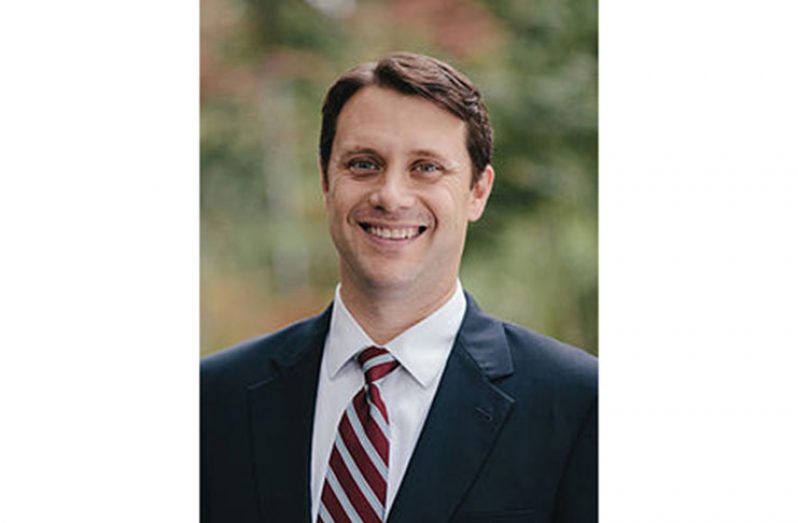— says political leaders must find solutions to challenges
AS the Court of Appeal prepares to hand down its decision today, the Carter Center is calling on Guyana’s political leaders to arrive at a consensus on a date for election in the event the court upholds the no-confidence motion against the government. As the clock ticks, it expressed the hope that the National Assembly would be convened no later than today to authorise an extension of the election timeline in an effort to avoid a period of constitutional uncertainty.
The call for political consensus was made on Thursday in the form of a statement.
“The Carter Center reiterates its support for Guyana and urges all sides to find an agreed-upon way forward to establish an early election date,” the statement read.
A Carter Center delegation, led by Jason J. Carter, chairman of the Carter Center’s Board of Trustees, has been engaging key stakeholders on the challenges facing the country with a view to assess whether the centre could assist Guyanese going forward.
Based on its engagements with the government and the opposition, the Guyana Elections Commission and other stakeholders, the Carter Center arrived at several conclusions. It said “President David Granger and Opposition Leader Bharrat Jagdeo have a shared desire to have elections in the shortest possible time, consistent with law and pending judicial decisions.”
President Granger has already written the opposition leader informing him that he is prepared to name a date within the confines of the advice of the Chairman of the Guyana Elections Commission (GECOM), who indicated the commission’s ability to hold elections no earlier than November 2019.
The Carter Center has also concluded that the GECOM commissioners recognise that the current voters list is “bloated.”
“A primary concern is the likely inclusion of significant numbers of Guyanese living overseas,” the center explained, while noting that the commissioners hold different views on whether the conduct of house-to-house registration would address the concern.
“GECOM’s chief electoral officer has prepared various scenarios for election timelines, and in the event that a new house-to-house registration is not required, elections could be organised in July or August. Conducting a new house-to-house registration would mean an election would not be possible until late November,” it further explained.
Carter Center said given the extraordinary circumstances surrounding the vote of no-confidence and the constitutional requirement for early elections, there are several steps that could be considered to mitigate concerns about the voters’ list, while scheduling elections as early as possible.
“Using data from the Ministry of Immigration, GECOM could prepare a reference list of Guyanese who are currently overseas (for three months or longer) and also included on the voter registration list. The voters on the reference list would not be removed from the registration list (other than through already existing legal procedures like, for example, the claims and objections process). But the reference list would be made available to party agents and scrutineers to facilitate enhanced review of these names during the electoral process, both during the claims and objections period and on election day, serving as a deterrent to multiple or substitute voting,” the Carter Center proposed.
SAFEGUARD
According to the centre, the reference list would supplement safeguards already in place in Guyana’s electoral administration to protect against multiple voting. The Carter Center said based on past elections, Guyana’s existing safeguards are strong and consistent with international standards for democratic elections.
It also recommended that GECOM consider providing resources to expand the number of political party agents and scrutineers who can monitor the electoral process before, during, and after elections day. It said these efforts could be complemented by a strong presence of international observers and domestic citizen observers to enhance transparency.
“The Carter Center is aware of pending decisions from the Court of Appeal and that these decisions may be appealed to the Caribbean Court of Justice (CCJ). In the event that final court rulings invalidate the vote of no-confidence, elections would not need to be held this year,” it said.
The centre’s visit this week comes at a critical moment. In making its proposals, the centre urged the political leaders to be cognisant of the consequences of not cooperating.
“Guyana could move into a time of constitutional uncertainty after March 22, which marks the end of a three-month period following a contested vote of no-confidence and the deadline to hold elections, unless there is a political agreement about the way forward and either a National Assembly vote or a court decision to approve an extension of the electoral timeline,” the centre explained.
Because March 21, 2019 is a national holiday, under Guyana’s Interpretation and General Clauses Act, the constitutional three-month period following the no-confidence vote expires today, March 22, 2019.
Prior to the delegation’s visit, former US President Jimmy Carter spoke with President Granger and Opposition Leader Jagdeo, both of whom indicated they would welcome a Carter Center team. The delegation was led by Jason J. Carter, President Carter’s grandson and the chairman of the Carter Center’s Board of Trustees, and includes David Carroll and Brett Lacy of the centre’s Democracy Programme.



.jpg)








